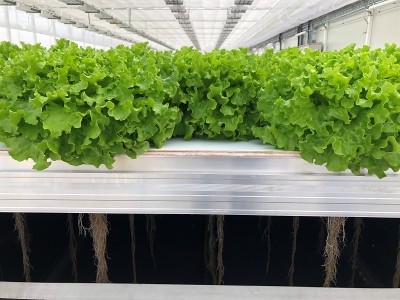Three little words: UK urged to add ‘household food insecurity’ to Agriculture Bill

The Agriculture Bill marks the first new legislation on British food and farming since the UK officially left the European Union on 31 January 2020.
As the UK will no longer adhere to the EU Common Agriculture Policy (CAP), the Bill – currently going through parliament – will provide the framework for replacement agricultural support schemes.
According to one provision of the Agriculture Bill, the government is legally required to measure and report on ‘food security’.
However, the provision in the draft bill – which focuses on global food availability; where the food comes from; the resilience of the supply chain; data on household food expenditure, food safety and consumer confidence – does not include household food insecurity.
MPs propose amendment to Clause 17
According to the UN Food and Agriculture Organization (FAO), food security exists when all people, at all times, have physical, social and economic access to sufficient, safe and nutritious food which meets their dietary needs and food preferences for an active and healthy life.
Yet in the UK, over 8m people struggle to get enough to eat.
The government has taken action to measure household food insecurity, which it will publish in a report by March 2021. However, a number of MPs want a commitment written into the Agriculture Bill.
Led by Labour MP for South Shields, Emma Lewell-Buck, the proposal seeks inclusion of ‘household food security’ within the definition of ‘food security’ in Clause 17 of the Bill.
The aim of the amendment, which has already been supported by 16 MPs, is to put current household food security measurement on a routine and mandatory footing, to help inform efforts to end food poverty.
According to Lewell-Buck, an advocate for action on food poverty, ignoring the household food insecurity issue s a ‘shameful dereliction of duty’.
“We are seeing devastating levels of hunger right across the UK. The Government have been dragged kicking and screaming into agreeing to measure food insecurity, however there is no commitment in legislation that the measurement will continue for future years, nor that the results of the survey they are conducting will be laid before Parliament for scrutiny.
“When hospital admissions for malnutrition are increasing and food banks are running out of supplies. It is clear urgent action is needed” – Emma Lewell-Buck MP
Non-profits back three-word inclusion
The proposal is being supported by not-for-profit food and poverty organisations in the UK.
Think tank the Food Foundation, for example, submitted written evidence to the Agricultural Bill Committee this month, with the key message: “Adding three words to the Agriculture Bill will help parliament to monitor household food insecurity.”
For Anna Taylor, chief executive of the Food Foundation, the problem of food insecurity in the UK has been overlooked ‘for too long’.
“It leaves life-long scars on healthy and wellbeing. Now we have a chance to ensure parliament receives regular reports on the scale of the challenge so measures can be put in place to tackle it.
“This is a real opportunity to begin the end of the scourge on our society.”
Food and farming charity Sustain is also backing the amendment proposal, which it suggests is much needed in the face of budget cuts to local food bank organisations.
“Year after year, charitable food banks have stalwartly provided evidence of the gigantic increase in the number of our fellow citizens regularly running out of money and food. Teachers tell us of children in their class struggling because they are going hungry,” said Sustain chief executive Kath Dalmeny.
“The idea that government would fail to routinely measure and take action to solve these problems is appalling. They need to face the facts.”
For Rachel Loopstra, a lecturer in nutrition at King’s College London, measuring household food insecurity is a ‘key requirement’ for eradicating food insecurity and food bank use in the UK.
“Not knowing if one’s food supplies will stretch to the end of the month, skipping meals, and experiencing hunger, are very real experiences of food insecurity that are only captured by experience-based measures of household food insecurity, not country-level measures or food expenditure measures.
“We need commitment to household food insecurity measurement to know how many people are affected each year and what policy and practice interventions make a difference.”

















